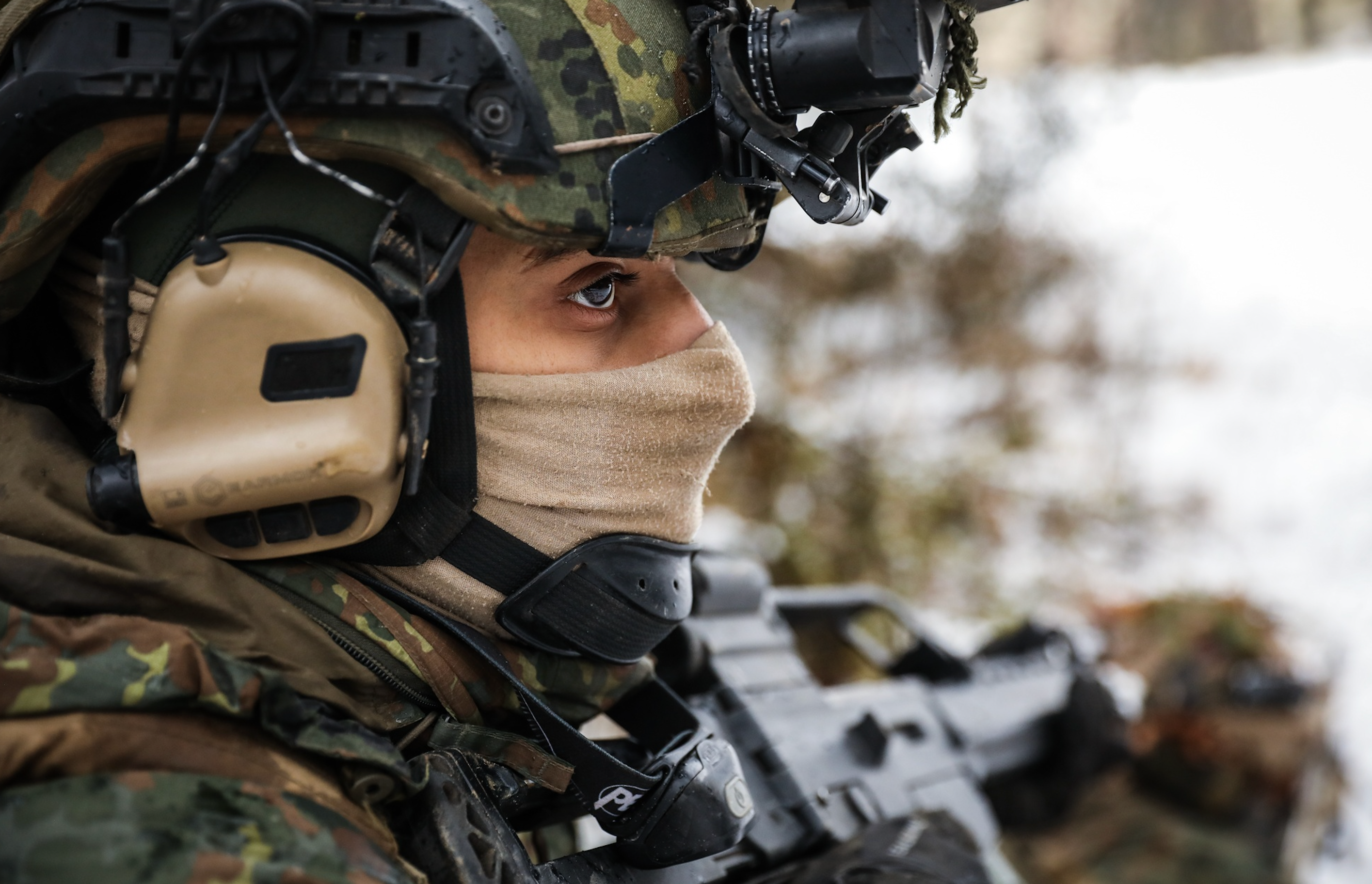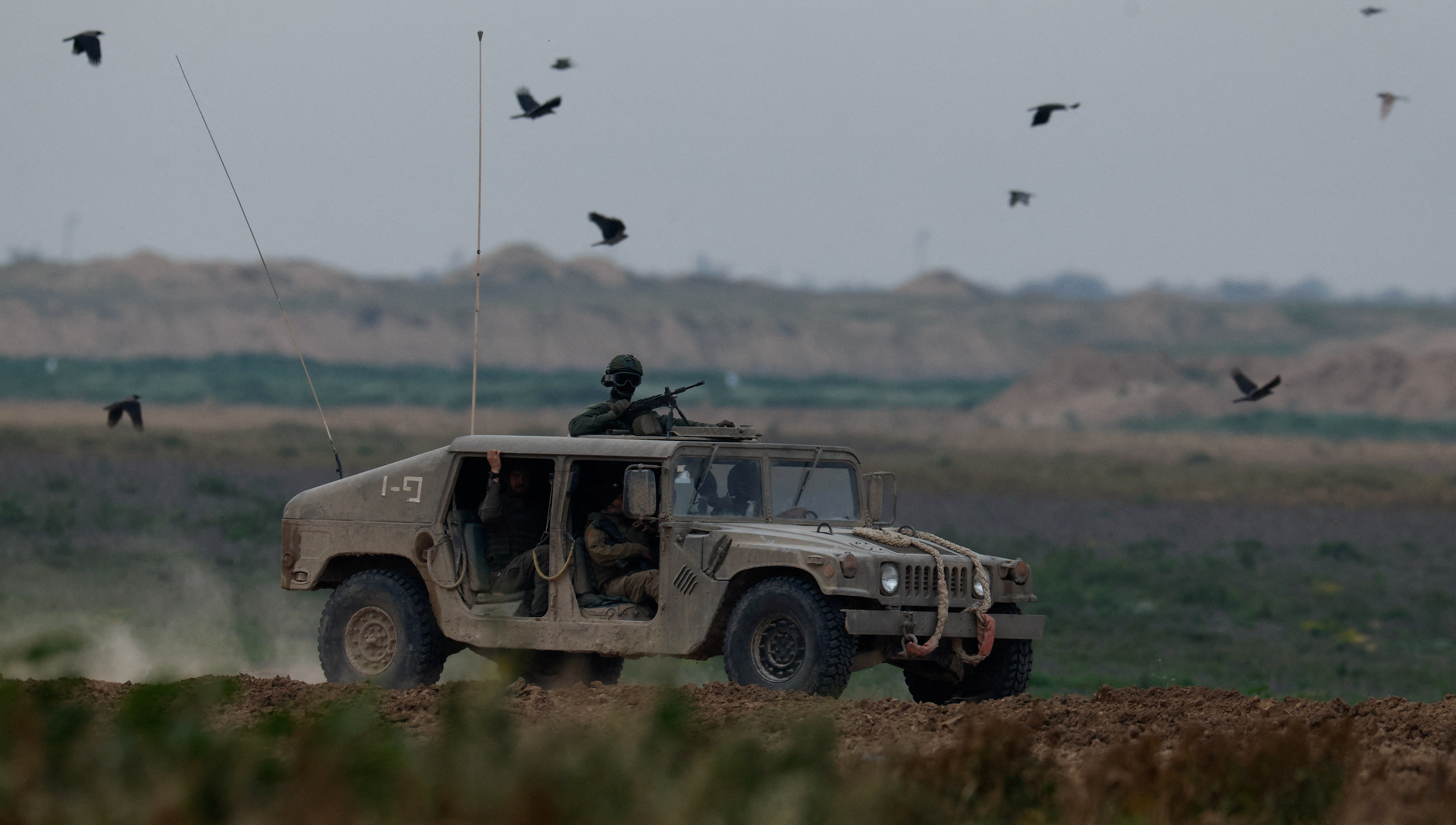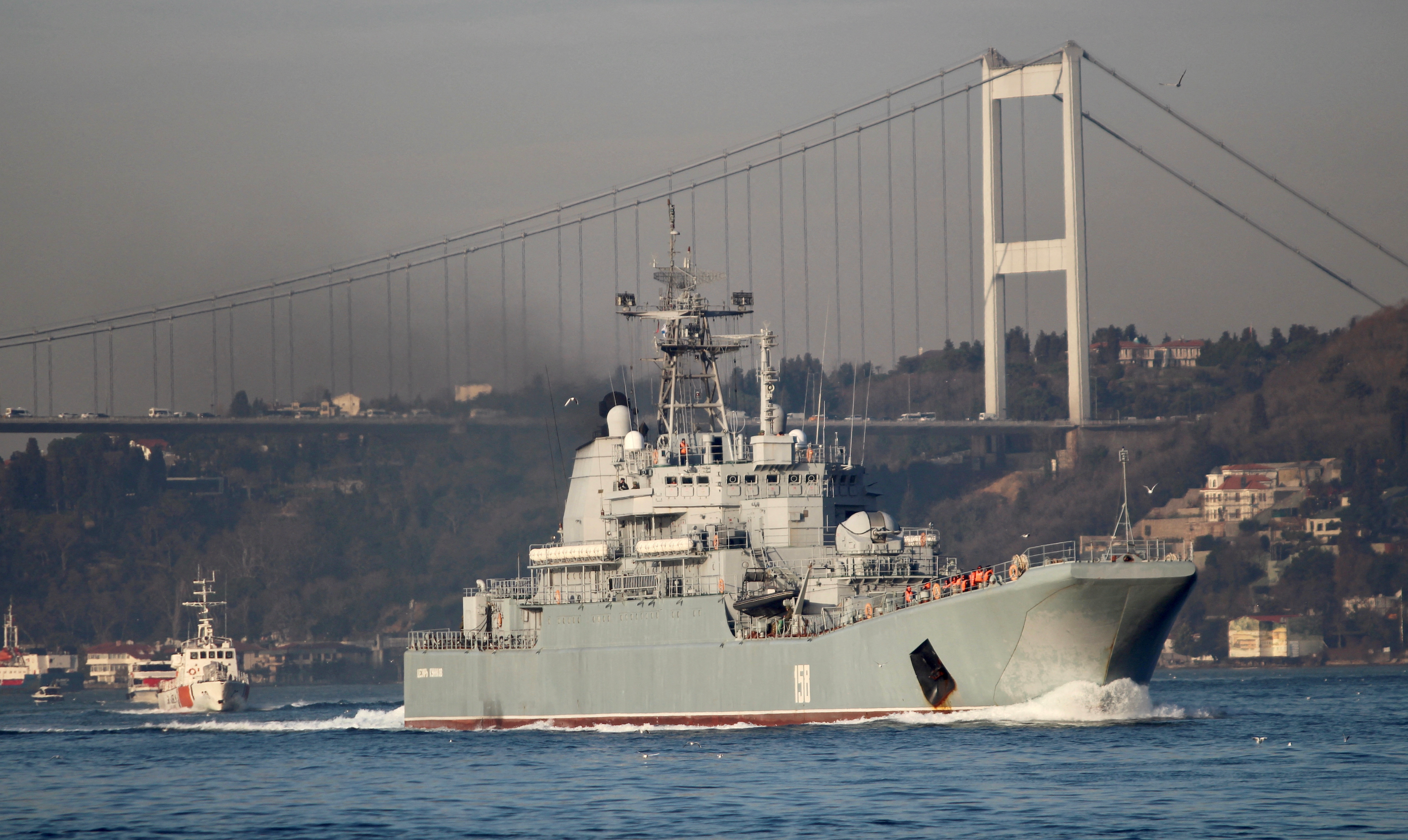
Germany hits 2% NATO spending target for first time since end of Cold War
PHOTO CAPTION: German soldiers attached to 401st PanzerGrenadier Brigade engage simulated enemies during Allied Spirit 22 at the Hohenfels Training Area in Germany, Jan. 31, 2022. (U.S. Army Photo by Cpl. Savannah Miller via U.S. Defense Visual Information Distribution Service)
By Alexander Ratz
BERLIN (Reuters) -Germany has met a NATO alliance target to spend 2% of its gross domestic product on defence for the first time since the early 1990s, a defence ministry spokesperson said on Wednesday, as spending ramped up after Russia's invasion of Ukraine in 2022.
The German government is allocating the equivalent of 71.8 billion euros ($76.8 billion) for defence spending in the current year through regular and special budget outlays. However, the sum of its total defence spending is classified.
NATO's Secretary General Jens Stoltenberg said on Wednesday that 18 countries were expected to meet the 2% target. NATO defence ministers are meeting in Brussels on Thursday. A separate meeting of the Ukraine Defence Contact Group, hosted by the United States, takes place on Wednesday.
German Chancellor Olaf Scholz's government has spotlighted its rising defence spending at an uncertain time for the North Atlantic Treaty Organization.
Former U.S. President Donald Trump on the weekend outraged allies by saying he would refuse to protect NATO members who did not spend enough on defence.
Reacting to those remarks in an interview on WELT TV on Tuesday evening, German Defence Minister Boris Pistorius said Trump risked damaging transatlantic relations and could "ultimately saw off the branch on which America is sitting."
Pistorius pushed back at opposition suggestions that Germany should increase its special military defence fund to 300 billion euros ($320 billion) from 100 billion, saying the government should increase its regular budgetary outlay instead.
That would help the government in procurement over longer time horizons, he said. "You can actually only do this in a serious, long-term manner with an increased individual plan," he said.
Pistorius also pushed back against the idea, which gained attention after Trump's remarks, of creating a separate European nuclear defence umbrella.
"I can only warn against starting such a discussion with such carelessness just because Donald Trump, who is not even a presidential candidate, makes such statements," he said.
($1 = 0.9350 euros)
(Reporting by Alexander Ratz; writing by Matthias Williams; editing by Miranda Murray and Ros Russell)









